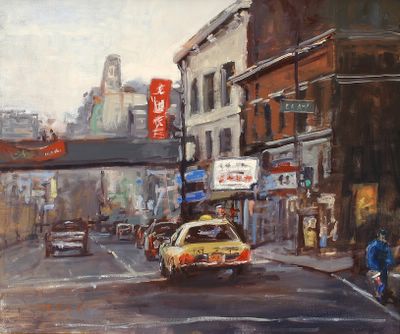BEAUTY IN THE MUNDANE
This is good example of how a creative artist can find beauty in the mundane, even a drab street scene.
"Downtown" Oil by Gene Costanza 20" x 24 "

'Abdu'l-Bahá says, 'When a man turns his face to God he finds sunshine everywhere.
AND
"......whichever way ye turn, there is the face of God: . (The Qur'an)
This work inspires me to find and paint my local street scenes.
See more of Gene's work at http://www.greenhousegallery.com/cgi-local/lookup.pl?titleid=11COSTAG1013&imagesize=fl&displayperpage=9999&displayhorz=4
Read more of Gods Word at http://www.bahai.org/
"Downtown" Oil by Gene Costanza 20" x 24 "

'Abdu'l-Bahá says, 'When a man turns his face to God he finds sunshine everywhere.
AND
"......whichever way ye turn, there is the face of God: . (The Qur'an)
This work inspires me to find and paint my local street scenes.
See more of Gene's work at http://www.greenhousegallery.com/cgi-local/lookup.pl?titleid=11COSTAG1013&imagesize=fl&displayperpage=9999&displayhorz=4
Read more of Gods Word at http://www.bahai.org/


(f)rev0504%20enh.1.jpg)
